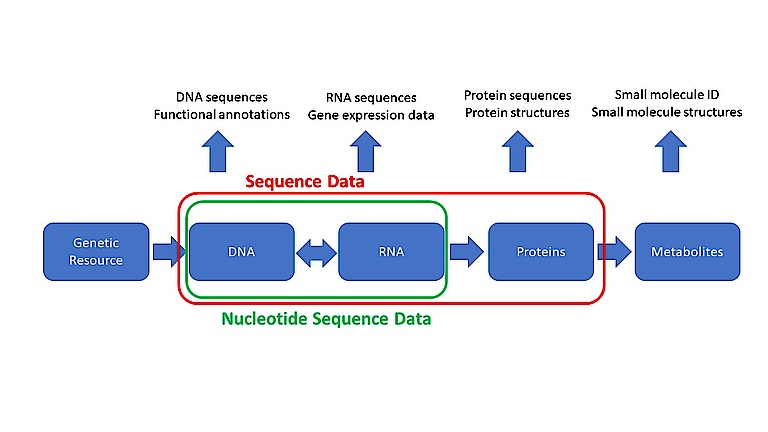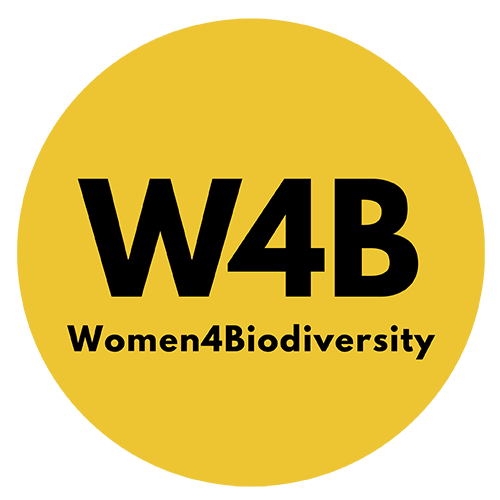Mrinalini Rai, Director, Women4Biodiversity
The Convention on Biological Diversity (CBD) is an international treaty established in 1992 with the aim of conserving biodiversity, promoting its sustainable use and ensuring the fair and equitable sharing of benefits from the use of genetic resources. In 2010, the Conference of the Parties to the CBD adopted the Nagoya Protocol on Access to Genetic Resources and the Fair and Equitable Sharing of Benefits Arising from their Utilization, which seeks to ensure that benefits from the utilization of genetic resources are shared in a fair and equitable manner. The Protocol entered into force on 12 October 2014.
In December 2016, at its thirteenth meeting of the Conference of the Parties to the Convention on CBD serving as the meeting of the Parties to the Nagoya Protocol (NP COP/MOP2) first addressed the issue of digital sequence information on genetic resources (Decision XIII/16).
The issue of DSI is currently a contentious issue under the CBD and other international agreements (the International Treaty for Plant Genetic Resources for Food and Agriculture [ITPGRFA], the Biodiversity Beyond National Jurisdiction, and World Health Organisation).
The CBD and its Nagoya Protocol recognises that genetic resources are the sovereign property of the countries where they are found, and regulate access to their genetic resources and that access to these resources should be subject to prior informed consent and mutually agreed terms that ensure benefit sharing.
Digital sequence information (DSI) is the genetic information encoded in Deoxyribonucleic Acid (DNA) and Ribonucleic Acid (RNA) sequences that can be digitally stored, accessed and analysed. DSI is used in various fields, including drug discovery, agriculture and conservation biology. With the growing importance of DSI in these fields, there is a need to ensure that its use is consistent with human rights and gender considerations.

In December 2022, at its fifteenth meeting, the COP decided to establish a multilateral mechanism for benefits sharing from the use of DSI on genetic resources and established the Ad Hoc Open-ended Working Group on Benefit-sharing from the Use of DSI following Decision 15/9. The issue of digital sequence information (DSI) and its relationship with the global biodiversity framework was a key topic of discussion at the Geneva Biodiversity Conference (CBD COP 15).
The same COP 15 adopted the Kunming-Montreal Global Biodiversity Framework (Decision 15/4), an international agreement that aims to set the course for global action on biodiversity over the next decade. The framework recognises the importance of DSI in the conservation and sustainable use of biodiversity, and of traditional knowledge associated with genetics resources and the fair and equitable sharing of benefits arising from its use, included in Goal C and Target 13 of the Kuming-Montreal Global Biodiversity Framework.
In addition, the framework also recognizes the importance of human rights (Section C) and gender considerations (Target 23) to the conservation, sustainable use, and fair and equitable sharing of benefits arising from genetic resources. It seeks to ensure that the rights of indigenous peoples and local communities, including their right to free, prior, and informed consent, are respected in the use of genetic resources, including DSI. It also seeks to promote gender equality to contribute to the three objectives of the Convention.
In the context of DSI, human rights and gender considerations are fundamental. DSI can be used to develop new drugs and other products that have the potential to improve human health and well-being. However, the use of DSI can also raise ethical and human rights concerns, particularly if it involves the exploitation of indigenous peoples and local communities and their associated traditional knowledge, innovations, practices and technology of genetic resources or the violation of their rights to free, prior and informed consent.
Gender considerations are also important in the use of DSI. Women are often underrepresented in science and technology fields, including those related to DSI. This can result in gender biases in the development and use of DSI, which can have negative impacts on women’s health and well-being.
The Ad Hoc Open-ended working group on Benefit-sharing from the use of DSI on Genetic Resources at its first meeting taking place from 14-18 November, in Geneva is expected to provide guidance on how DSI can be used in a manner consistent with the objectives of the convention while ensuring that the fair and equitable sharing of benefits from the use of genetic resources is not compromised, including the elements identified in the annex of CBD COP decision 15/9. It is important to note that in the same decision, it is Parties are encouraged to support the capacity needs and priorities of indigenous peoples and local communities, emphasising the capacity needs and priorities of women.
The 13 issues for consideration that are going to be discussed in Geneva are (Decision 15/9, Annex):
(a) Governance of the fund;
(b) Triggering points for benefit-sharing;
(c) Contributions to the fund;
(d) Potential to voluntarily extend the multilateral mechanism to genetic resources or biological diversity;
(e) Disbursement of monetary benefits, including information on geographical origin as one of the criteria;
(f) Non-monetary benefit-sharing, including information on geographical origin as one of the criteria;
(g) Other policy options for the sharing of benefits from the use of digital sequence information on genetic resources, including as identified through further analysis, as referred to in paragraphs 6 and 7 of the present decision;
(h) Capacity development and technology transfer;
(i) Monitoring and evaluation and review of effectiveness;
(j) Adaptability of the mechanism to other resource mobilization instruments or funds;
(k) Interface between national systems and the multilateral mechanism on benefit-sharing;
(l) Relationship with the Nagoya Protocol;
(m) Role, rights and interests of indigenous peoples and local communities, including associated traditional knowledge;
(n) Role and interests of industry and academia;
(o) Linkages between research and technology and the multilateral mechanism on benefit-sharing;
(p) Principles of data governance.
The Kunming-Montreal Global Biodiversity Framework has guidelines (Section C) for the implementation of the Framework to guide the full implementation of the biodiversity framework and is also relevant to the scope and for the consideration of the outcome of Target 13.
However, there are concerns about who has access to this information and how it is used. Some countries and communities argue that they should have greater control over DSI that originates within their borders, while others believe that unrestricted access to DSI is essential for scientific progress. Finding a way to balance these competing interests is a key challenge facing the global community and one that will require careful consideration and collaboration. Ultimately, the goal is to ensure that DSI is used in a responsible and sustainable manner that benefits all, while respecting the rights and interests of all stakeholders.
In conclusion, the issue of DSI and its relationship to the CBD is a complex and evolving one. The use of DSI is becoming increasingly important in the conservation and sustainable use of biodiversity. However, its use must be consistent with rights-based approaches these may include but are not limited to ensuring transparency, disclosure requirements, intellectual property rights and accountability of databases. It might be necessary to establish an international legal framework that defines what “fair” and “equitable benefit sharing” means, as its absence could pose a challenge in fully acknowledging the contributions, access, and impacts of the work of Nagoya Protocol and subsequently DSI under the Convention and in other areas where it is being developed, negotiated, and planned for implementation.
The meeting in Geneva of the Ad Hoc Open-ended Working Group on Benefit-sharing from the Use of Digital Sequence Information on Genetic Resources is of great significance. It is crucial that the outcome of this meeting ensures the fair and equal recognition of traditional knowledge, innovations, practices, and technology in all aspects of DSI. Additionally, it should consider how these elements can be incorporated into the scope of access and benefits arising and the funding mechanism. The working group is expected to provide recommendations to the Conference of the Parties at its sixteenth meeting, which is scheduled to take place in October 2024.


